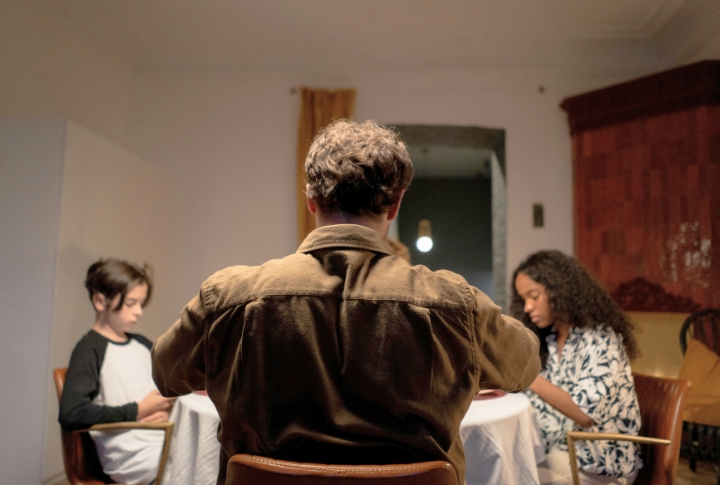
Every household has moments when conversations miss the mark. What seems harmless to one person can feel like rejection to another. Parents, in particular, notice these slips because they invest so much in the family dynamic. To better understand how this happens, let’s gather examples of comments that can leave moms and dads feeling invisible at home.
“We Don’t Need Your Help”

Few things hurt more than wanting to contribute but being shut out. When parents are told their help isn’t needed, they feel unnecessary in their own home. Children mirror this language from adults, unaware of its weight. Interestingly, families who share chores report feeling closer and more satisfied.
“Stop Acting Like A Child”

Arguments escalate quickly when this phrase is thrown into the mix. It flips authority on its head and belittles the parent in front of others. Role reversals like these are flagged in family therapy as signs of disrupted boundaries and emotional imbalance.
“Dad/Mom Does It Better”

It starts with something small: dinner not seasoned enough or help with homework. Yet the impact is creating unnecessary rivalry between parents. Comparisons make one caregiver feel inadequate, and children often stretch the remark by saying pets or friends do it “better.”
“You’re So Embarrassing”

Each generation defines what’s “cool,” and adults at home inevitably fall behind the curve. Humor that once worked now falls flat, and clothing choices spark criticism. Teens highlight these differences most loudly in public. Though tossed out lightly, the phrase excludes parents and marks them as outsiders.
“We Already Decided Without You”

Shared decision-making boosts both family resilience and the sense of connection at home. What happens when plans unfold without a parent’s involvement? The outcome is exclusion. Common in vacations or weekend activities, this habit tells the household leaders their input is secondary.
“You Don’t Belong Here”

Arguments sometimes bring out words that cut deeper than intended. “You don’t belong here” is one of them. It pushes family caretakers to feel excluded from the family they’ve built. This phrase is especially destructive because it shatters a parent’s most basic sense of belonging.
“Why Are You Here?”

During a sibling hangout or a casual gathering, mom/dad may hear the blunt question: “Why are you here?” The words land with force. Instead of feeling included, they are cast as unwelcome. What should be a moment of connection becomes an experience of rejection.
“You Don’t Do Anything For Us”

Often said in frustration, this remark dismisses years of visible and invisible sacrifice. In reality, parents contribute thousands of hours (over 14,000 before a child turns 18) through care and support. Moreover, they often put their children’s needs first, even when it goes unacknowledged.
“We Don’t Trust You With That”

This phrase appears when tasks involve technology or school responsibilities. It signals incompetence and pushes parents aside. Trust, however, is a cornerstone of family cohesion, and excluding the adults from responsibility weakens the very foundation of mutual respect at home.
“You’re Too Old For That”

A parent dances in the kitchen or downloads a new app, and the comment arrives: “You’re too old for that.” The jab builds distance, treating curiosity as out of place. Yet many people flip the script; they master trends quickly to show that learning has no expiration date.
“Stop Talking, No One Cares”

Though inner tables are supposed to be places for connection, this phrase cuts that possibility short. It silences parents and strips value from their words. Over time, dismissal like this predicts long-term resentment, as conversations that should build bonds instead leave the grown-ups in the room feeling invisible at home.
“Why Can’t You Be More Like Other Parents?”

Comparison rarely lifts anyone. Hearing this forces caretakers to measure themselves against outsiders and sparks insecurity about their style and choices. These comments usually surface around school or peer events, where differences are most noticeable.
“You’re Not Making Sense”

This phrase pops up when kids don’t like what they’re hearing. Instead of engaging with house rules or explanations, they attack the parents’ ability to communicate clearly. It leaves parents feeling like their thoughts are scattered and their authority undermined, even when their reasoning is perfectly sound.
“We Don’t Want To Hear Your Stories”

Ironically, storytelling is a tool for memory and a bridge that strengthens emotional ties across generations. That’s why when a parent’s stories are silenced, it feels like more than lost words. It suggests that tradition and wisdom no longer matter. This dismissal leaves them feeling outdated.
“You’re Not Fun Anymore”

Comments about losing a sense of fun target a parent’s identity rather than behavior. When adults are told they’re boring or no longer enjoyable to be around, it signals emotional distance and disappointment. Over time, this phrase can create a barrier between parents and children.
“Nobody Asked You”

Conversations around the table or in the living room sometimes take a sharp turn. Parents offering an idea may be cut off with “nobody asked you.” That simple remark pushes them aside. Adults frequently recall how painful those words felt, proving their staying power across time.
“We Wish You Weren’t Here”

Unlike most criticisms, this remark bypasses behavior and attacks identity. “We wish you weren’t here” is remembered as one of the most painful phrases parents encounter. It is usually spoken in moments of rage, but the impact endures and leaves a mark that challenges their sense of value.
“You’re Just Overreacting”

Typically, conflicts over rules or discipline spark this phrase. It invalidates a parent’s emotions, suggesting their concerns lack reason. Teens, in particular, underestimate how much stress the backbone of the household carries. Over time, being labeled as “overreacting” teaches parents that their feelings don’t deserve acknowledgment at home.
“You Always Ruin Everything”

Happy moments like parties or vacations sometimes carry an unexpected accusation: “You always ruin everything.” The comment frames parents as joy-stealers, regardless of their efforts. The pattern leaves lasting marks. Decades later, many still remember those words clearly.
“Stop Being So Negative”

When parents voice concerns about safety or poor choices, they’re often labeled as “negative.” This shuts down their protective instincts and dismisses genuine worries as pessimism. Parents feel caught between staying quiet or being seen as the family killjoy, even when they’re just trying to help.

